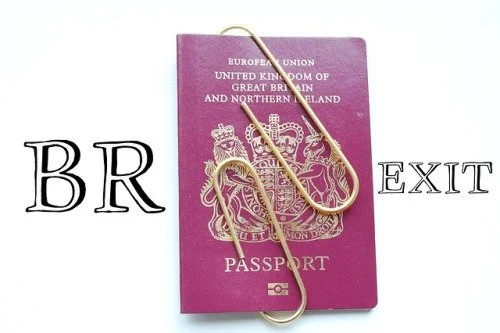The Visa Process - How to get a chalet host job with a British passport
Do you want to do a ski season as a chalet host but have heard it might be difficult if you have a British passport? Well it’s not as straightforward as it use to be, but there is a way. Read on to learn more about the process and our own experience of going through it.
Since the UK left the EU, you now need a work permit and a work visa to work in France. This is not a particularly quick or easy process to follow and there are no guarantees of success, but there is a route. Here’s how….
1. First things first you must apply and get offered a job. Doing a chalet hosting course will help so be sure to check out our Fresh Tracks Online Courses running this year. Once you’ve got an offer then the company will sort out a work permit for you. This winter we got a chalet host job in La Plagne and, apart from providing a few bits of basic information and making sure our passports were in date, the company took care of sorting out the work permits for us.
2. The next step is to apply for your long-stay visa. This requires an online application and a trip to the TLS centre either in London or Manchester. We were fortunate to have advice and support from our managers on how to navigate this process and they coordinated the appointments. However, these are fixed dates so you must be prepared to travel regardless of your personal situation. For us this meant an overnight trip from Cornwall up to London for an early morning appointment.
3. Next you visit the TLS centre to show your documents and hand over your passport. Expect a long wait here alongside many other people going through the same process. Our advice is to take a book and some food as you’re not allowed your phone and there are no refreshments on site. After our paperwork was checked, panicked passport photos re-taken, and payments made, we had our biometrics’ taken (fingerprints and eye scans) before we handed over our passports and were sent on our way.
4. Your visa is then processed and issued, and you are instructed to collect your passport from the TLS centre. Luckily our managers were able to arrange a third party to do this on our behalf as another trip to London would not have been cheap! Once our passports had been posted back to us, we noticed they had only been issued for 3 months and thus expired mid-season at the end of Feb, not particularly helpful, but apparently the norm. This initial temporary visa at least allows you to get out to resort and start work.
5. Once out in resort your company should assist you in the process of applying for a visa extension as it’s just as much for their benefit as yours. For us this required an initial trip to Chambery to visit the Prefecture, again a date that we could not pick or change, so required some flexibility in terms of working days/hours. A temporary extension is then granted, and you can finish working the rest of the season in France.
You now have the choice to either end the process and finish the season on your temporary visa, an option if you don’t intend to work back in France in the foreseeable future, or you can continue the process and apply for your “Carte De Sejour Pluriannuelle”, a card which entitles you to complete seasonal work in France for 6 months a year for the next 3 years.
We took the decision to continue the process and apply for this….and so the process continues…
6. If you are going for your Carte De Sejour Pluriannuelle then a series of appointments are now required:
a) Firstly, an appointment is necessary to have a chest x-ray. For us, our employer arranged for this in Albertville, so it was another trip down the mountain which was somewhat frustrating for what was a very quick appointment, but at least gave us a chance to get a McDonalds!
b) Next up was a long and laborious trip to Grenoble to have a medical examination which consisted of a doctor checking your chest x-ray and the odd prod and poke to make sure you’re in general good health (thank god they don’t check chalet host livers!). The doctor then issues you with your medical certificate.
c) A visit back to the Prefecture to collect your Carte de Sejour Pluriannuelle is the final hurdle. The card replaces your temporary extension, and you are given a card valid until the date you initially started the process, so for us it is now valid until Feb 2025. Our experience of this last appointment was far from fun, queuing alongside hundreds of other seasonnaire’s despite it simply requiring handing over the doctor’s medical certificate, returning your temporary visa and proving you have paid the fee.
We anticipate that this will be the process that anyone with a British passport who wants to work in France will have to go through, but things can change, and this was the first time it has been implemented so your experience may be different.
A few final points to highlight are that in general the process is long, laborious and comes at a cost. We were lucky to have a supportive employer who helped coordinate and arrange the paperwork and appointments but be prepared to spend a lot of time waiting around for things to be processed and issued. With regards to costs, again this will vary depending on your employer and what they are prepared to offer. The cost of the visa is somewhere around £100, and if you go on to collect your Carte De Sejour Pluriannuelle this cost us £75. Best bet is to check out what companies are offering you in terms of support and re-imbursements of costs and don’t forget to include other expenses such as travel and accommodation which you may incur.
For us, although we continue to reminisce about how lucky and simple things were pre-Brexit, now, with the opportunity to continue to work as chalet hosts in France now for the next 3 years, the process has been worth it.







